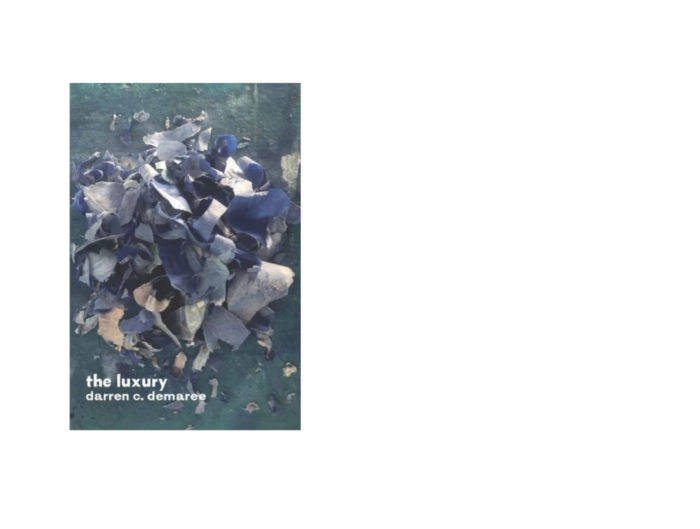E.P. Tuazon’s forthcoming collection of Filipino-American short stories, A Professional Lola (Red Hen Press, 2024), offers a fresh take on identity and explores what it means to be an ever-evolving character in our own stories.
Through the extraordinary, we learn from family members, friends, strangers, protagonists, and even Bigfoot that identity is complex and fluid.
Our sense of self depends on who we’re with, the country we’re in, and the lessons we learn. It can change when life throws us a curveball and challenges everything we thought was true about ourselves and our relationships. It can also change when we embrace what we’ve known, no matter how late in life.
In “Blood Magic,” the passive wife of a neglectful husband seeks escape in a spell-casting women’s group that comes with its hierarchy. Brother and sister twins find their extra-close relationship threatened in “Bellow Below” when a third person is thrown into the mix. “Carabao” tells a tale through the eyes of a young boy whose grandfather finds peace after a dramatic transformation.
E.P. Tuazon is a Filipino-American writer in LA whose work has appeared in several publications. I had the privilege of interviewing them about life, the writing craft, and their diverse cast of characters whose stories will linger with you long after you’ve closed the book.
You clearly have a gift for short storytelling. What is your writing background?
I started writing in high school and college, but I never majored in writing. Instead, I just read everything. I fell in love with reading in college. Even though I didn’t do an MFA or go to school for writing, I feel like I learned a lot from what I love to read. Slowly, I learned I used to find an author and read everything they’d ever written. In college, I read everything of Ernest Hemingway, James Joyce, Anton Chekov, J. D. Salinger, Sandra Cisneros, and Sherman Alexie. After college, I read all of Raymond Carver, Richard Ford, Flannery O’Connor, Z.Z. Packer, David Sedaris, Haruki Murakami, Lydia Davis, Loorie Moore, and Jessica Hagedorn. I’m still reading and learning and being amazed by all the new ways people can tell a story. Some of my favorites today include Miranda July, Bryan Washington, Lysley Tenorio, Yiyun Li, and Benjamin Percy.
Five South originally published the short story “Professional Lola.” What made you lead the collection with this?
“Professional Lola” still is one of the most personal stories to me. Because of that, I think the heart in it really comes through and resonates with a lot of people. I felt like it was a good introduction to myself and what I want to do in my stories. In this collection, I wanted the reader and I to share in a miracle.
When did you know the work you were putting out would turn into a collection?
I began to receive messages from readers who not only agreed with my work but also wanted to know where they could find more of my stories. There are a lot of Filipino American writers out there, and I am happy to join them in our pursuit of making our voices and our culture known to a wider demographic, especially to the American one.
However, beyond writing about my culture, I am learning that people also like my particular style. I wanted to put together a collection that showcased what I could do. I don’t think I can fully define what I do—I think what I do keeps changing, honestly—but I knew I could at least pick out the stories that represented a moment in time. The moment in time I chose to collect stories from was when I was searching for my identity.
Sometimes, you have to look within to do that, and writing these stories from that time allowed me to address a lot of things I have been thinking about. Specifically, I focus on the roles we assume in our interpersonal relationships. Grandmother, grandson, boss, employee, brother, sister, husband, wife—all these roles are important and change with time and circumstance. I wanted to explore how these roles conflict with culture, time, and place.
Each story is compelling and has earned its place in the book. They create an emotional journey for the reader, beginning with the touching “Professional Lola” and ending with the poignant “Carabao.” How did you choose to order the stories?
I wanted to make sure I had a good balance of stories that were hopeful, tumultuous, funny, and strange. With that in mind, I just tried to put them in an order that just “felt right.” There was a lot of reading through and changing the order of stories in the collection to make sure they flowed well. I wanted the reader to have an array of feelings as they experienced each story, but I didn’t want them to get too exhausted (hahaha). I wanted to make an order that makes a reader want to keep reading and to leave the collection with something they can take with them.
What, if anything, do your protagonists have in common?
They’re all Filipino (haha!). Well, besides that, they’re struggling with their identity. Like I mentioned before, each character is exploring the roles they play in the lives of others. Everyone is trying to figure out how to act and how to respond to each other, for better or worse.
A Professional Lola includes stories from various perspectives: male, female, younger, older, and nearly everyone in between. How important is it to include characters from different demographics?
Very important. Everyone deserves a place in our stories, especially those trying to figure out where they belong in their culture, like me. The Diaspora is real, and everyone belongs! It’s easy for me to say, but, even though I believe this wholeheartedly for others, it’s a struggle to feel this for myself. I often doubt myself, my place in my culture, or my ability to write about different things from a limited perspective. However, I love to write about all sorts of things and try to do everything they deserve justice. I’m still learning, and I will not pretend to know everything, but writing about others helps me learn more and connect.
“After Bigfoot” is such a treat! I wrote in my notes that I felt “outcooled” by them. How would Bigfoot feel about their representation?
Hahaha! I would hope they are amused. I’ll ask them next time we’re in “The Peens” together.
What does a satisfying short story ending look like?
A satisfying ending brings everything together and trusts the reader to make their own conclusions about the story. I like ambiguity in stories. Not too much where it gets confusing, but enough so that the reader can make their own connections and be involved. Yeah, a good ending engages the reader in some way.
How important is reading to you as a writer?
Very. I love to read, and I learn from it. Writing is a very solitary act, but reading as a writer allows you to have an intimate meeting with another writer. Reading as a writer allows you to uncover the secrets of the writer you’re reading, especially the ones you admire, and learn to use those secrets yourself. Well, they’re not really “secrets”. What the writer is doing is there on the page, but you get to pay closer attention to what they do to illustrate an idea, describe the difficult to describe, and evoke an emotion.
Is there anything you would like readers to take away from your book?
Above anything else, I hope the reader is able to enjoy the book. Reading is a pleasure for me, and I hope it is a pleasure for the reader to read my work. After that, I hope that readers are able to learn something about Filipino-American culture.
And, for my fellow Filipino-Americans who grew up in the 90s and early 2000s, I hope this book resonates with them, and they don’t feel alone.


